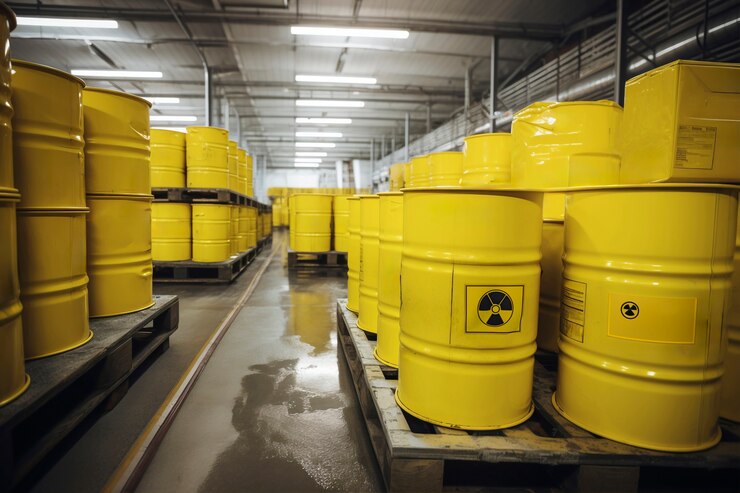
Transporting hazardous cargo is a critical aspect of global logistics, involving the movement of goods that pose risks to health, safety, or the environment. The complexity of handling such materials necessitates adherence to stringent regulations and best practices.
1. Regulatory Compliance
Challenge: Navigating the myriad of regulations governing hazardous cargo can be daunting. International standards such as those set by the International Air Transport Association (IATA) and the International Maritime Dangerous Goods (IMDG) Code dictate specific requirements for the transport of dangerous goods. Compliance with these regulations is essential to avoid legal repercussions and ensure the safety of all stakeholders involved.
Solution: To manage regulatory compliance effectively, businesses should invest in training and certification programs for their staff. Understanding and adhering to regulations related to packaging, labelling, and documentation is crucial. Partnering with experienced hazardous cargo companies can also streamline the process, as these companies are well-versed in current regulations and can ensure that all shipments meet the necessary legal requirements.
2. Safe and Secure Packaging
Challenge: Proper cargo packaging is fundamental to preventing leaks, spills, and other accidents that can occur during the transport of hazardous materials. Incorrect packaging can lead to dangerous incidents, environmental damage, and costly penalties.
Solution: Implementing specialized packaging solutions is key to addressing this challenge. Hazardous cargo must be packed in containers designed to withstand specific types of risks associated with the material. Utilizing packaging that meets IATA and IMDG standards ensures that the cargo is secure and protected throughout its journey. Regularly reviewing and updating packaging protocols in line with industry standards will help maintain safety and compliance.
3. Documentation and Labelling
Challenge: Accurate documentation and labelling are essential for the safe transport of hazardous cargo. Inadequate or incorrect documentation can result in delays, fines, and even legal issues. The need for precise labelling to indicate the nature of the cargo and associated risks is also critical.
Solution: Establishing a robust system for managing documentation and labelling is crucial. This includes ensuring that all required paperwork, such as Material Safety Data Sheets (MSDS), is completed and accurate. Proper labelling should clearly identify the cargo’s classification and handling instructions. Leveraging technology, such as digital documentation systems, can improve accuracy and efficiency in managing hazardous cargo paperwork.
4. Safety Protocols and Risk Management
Challenge: The safe handling and transportation of hazardous materials involve implementing stringent safety protocols to prevent accidents and ensure the well-being of personnel and the public. This includes managing risks associated with the handling, loading, and unloading of dangerous goods.
Solution: Developing and enforcing comprehensive safety protocols is essential. This includes conducting regular safety training for employees, implementing emergency response plans, and utilizing personal protective equipment (PPE). Additionally, risk assessments should be conducted periodically to identify potential hazards and implement mitigation measures. Collaborating with safety experts and consulting industry guidelines can enhance safety practices and reduce the likelihood of incidents.
5. Efficient Handling and Logistics Coordination
Challenge: Coordinating the logistics of hazardous cargo transport can be complex, involving multiple parties and modes of transport. Efficient handling is essential to ensure timely delivery while maintaining safety and compliance.
Solution: Streamlining logistics coordination involves optimizing route planning and selecting appropriate transport modes. Utilizing a centralized logistics management system can improve visibility and coordination across the supply chain. Engaging with experienced freight forwarders who specialize in hazardous cargo can facilitate smoother operations and ensure that all aspects of the transport process are managed effectively. Ensuring clear communication between all parties involved in the transport process is also vital to address any issues promptly and maintain efficient operations.
Best Practices for Hazardous Cargo Transport
To further enhance the safety and efficiency of hazardous cargo transport, consider the following best practices:
Regular Training: Continuously train employees on the latest regulations, safety procedures, and best practices for handling hazardous materials. Keeping staff informed ensures they are prepared to manage risks and comply with legal requirements.
Collaborate with Experts: Partner with logistics providers and consultants who specialize in hazardous cargo. Their expertise can help navigate complex regulations and provide solutions tailored to specific needs.
Implement Technology: Utilize technology to streamline processes, improve accuracy in documentation, and enhance tracking capabilities. Digital tools can also aid in managing safety protocols and compliance.
Maintain Compliance: Stay updated on changes in regulations and industry standards. Regularly review and update compliance procedures to align with the latest requirements.
Conduct Audits: Perform regular audits of hazardous cargo handling practices and safety protocols. Identifying areas for improvement can help mitigate risks and enhance overall operational efficiency.
Transporting hazardous cargo presents significant challenges, but with the right strategies and solutions, these challenges can be effectively managed. By focusing on regulatory compliance, safe packaging, accurate documentation, robust safety protocols, and efficient logistics coordination, businesses can ensure the safe and compliant transport of dangerous goods.
Implementing best practices and partnering with experienced professionals will further enhance safety and efficiency, helping to mitigate risks and achieve successful outcomes in hazardous cargo logistics. At Abhijeet Logistics Private Limited, a leading logistics company in India is committed to providing expert solutions for hazardous cargo transport, leveraging our extensive experience and industry knowledge to deliver safe, compliant, and efficient logistics services.
Contact us to learn more about how we can support your hazardous cargo needs.



